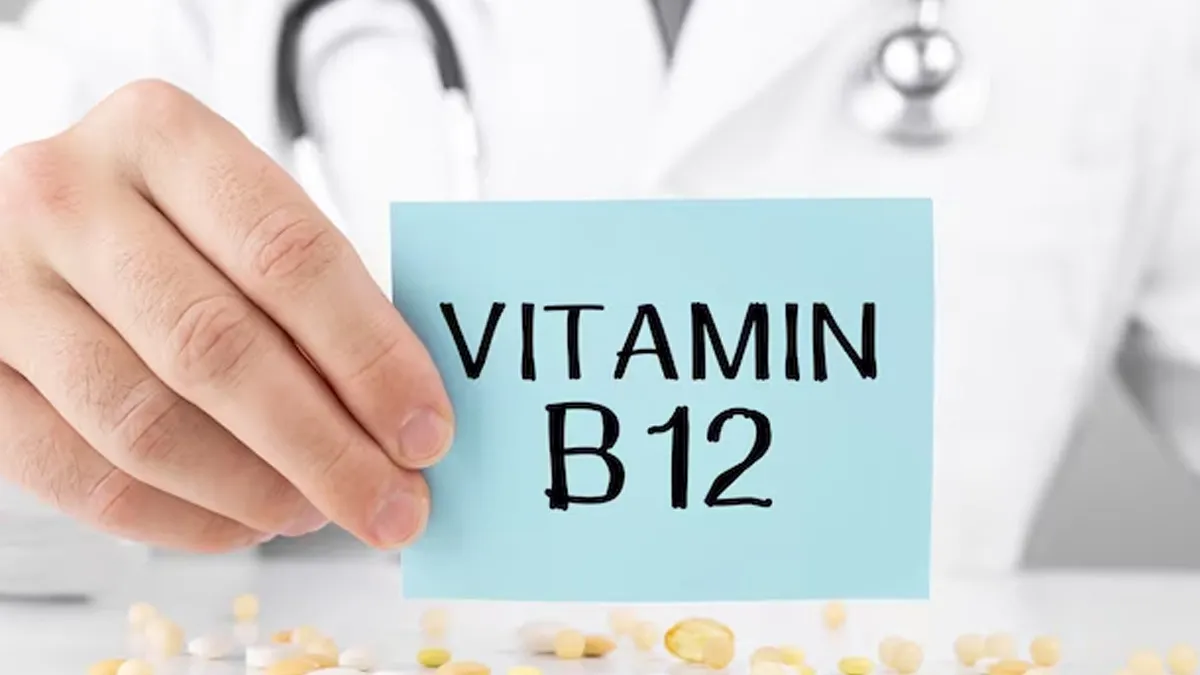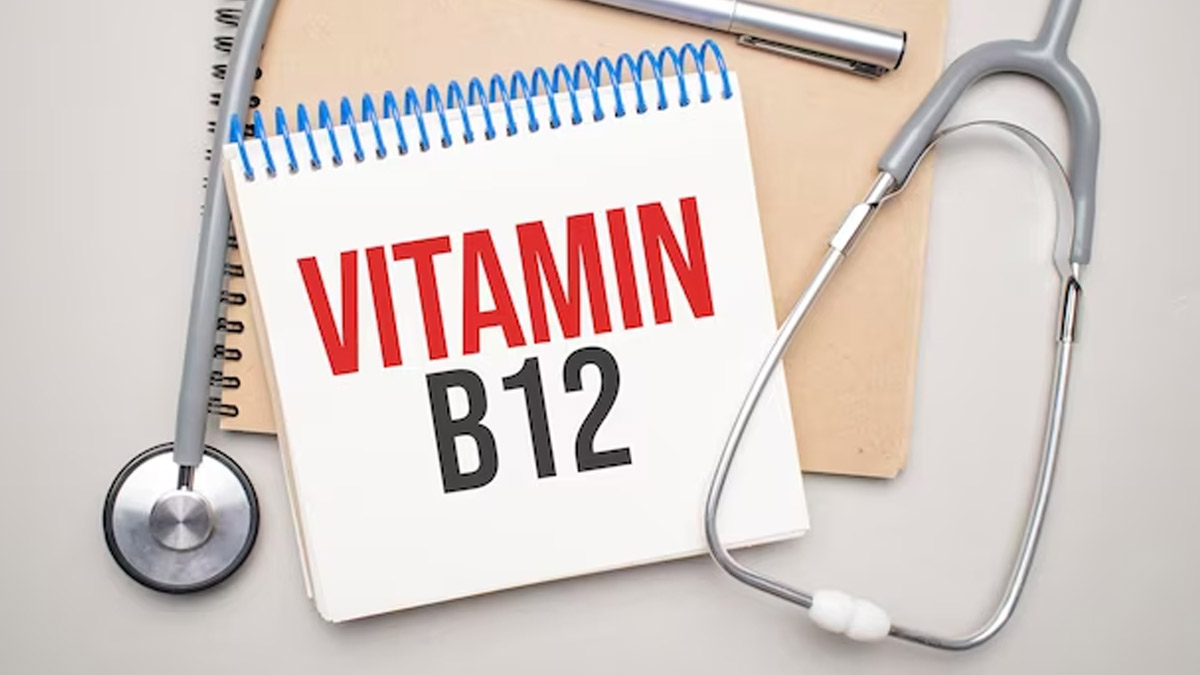
Have you been feeling a bit tired or foggy lately? It could be a sign that you're low on Vitamin B12. This vitamin is super important for keeping your nerves and blood cells healthy. Now, if you're a vegetarian, you might be wondering how to get enough of it naturally since it's mostly found in animal products. Don't worry, there are some awesome vegetarian superfoods that can help boost your B12 levels! Let's dive in.
Table of Content:-
Why Is Vitamin B12 Important?
Before we talk about the foods, let's quickly understand why B12 is such a big deal. It plays a key role in:
- Keeping your brain sharp: It helps with memory and concentration.
- Making red blood cells: These carry oxygen all over your body, giving you energy.
- Keeping your nerves happy: It helps them send signals properly.
Not getting enough B12 can lead to tiredness, weakness, tingling in your hands and feet, and even problems with memory.

Also Read: Avoid Acid Reflux: Dietitian Reveals 5 Best Meal Timings and 4 Foods to Steer Clear Of
Vegetarian Superfoods to the Rescue!
While it's true that naturally occurring, active Vitamin B12 is primarily found in animal sources, some vegetarian foods are fortified with it, and others contain forms that your body might be able to use. Let's explore these super options:
1. Nutritional Yeast
If you haven't met nutritional yeast yet, get ready for a treat! These yellow flakes have a cheesy, nutty flavor and are often fortified with Vitamin B12. Just a sprinkle on your pasta, popcorn, salads, or scrambled tofu can give you a good boost. Make sure to check the label to ensure it's fortified with B12, as not all brands are.
How to use it:
- Sprinkle it on almost anything for a cheesy flavor.
- Mix it into sauces and dips.
- Use it as a topping for baked potatoes.
2. Fortified Plant-Based Milks
Almond milk, soy milk, oat milk – many of these popular dairy-free alternatives are fortified with Vitamin B12. This makes them a convenient way to get your daily dose, especially if you enjoy them in your cereal, coffee, or smoothies. Again, always check the nutrition label to confirm the B12 content.
How to use it:
- Drink it straight up.
- Use it in your morning coffee or tea.
- Blend it into delicious smoothies.
- Use it in vegan baking and cooking.

Also Read: Protect Your Kid's Skin From Sun Damage: Why Choose Mineral Sunscreen Over Chemical?
3. Fortified Cereals and Breakfast Foods
Some breakfast cereals, granola bars, and other morning foods are fortified with Vitamin B12. While these shouldn't be your only source, they can contribute to your overall intake. Look for options with a good amount of B12 listed on the label.
How to use it:
- Enjoy a bowl of fortified cereal with plant-based milk.
- Grab a fortified granola bar for a quick snack.
4. Tempeh and Miso
These fermented soybean products are nutritional powerhouses, offering protein and other benefits. While they contain some forms of B vitamins, the active and readily usable form of Vitamin B12 is generally not found in significant amounts in unfortified tempeh and miso. Some studies suggest they might contain inactive B12 analogs that can't be used by your body and might even interfere with the absorption of active B12. So, while they're healthy additions to your diet, don't rely on them as your primary B12 source.
How to use them:
- Tempeh can be marinated and stir-fried, baked, or added to sandwiches.
- Miso is great for soups, sauces, and marinades.
5. Seaweed and Algae
Certain types of seaweed like nori and algae like spirulina and chlorella have been reported to contain Vitamin B12. However, much of the B12 found in these sources might be in an inactive form (cobamides) that isn't effectively used by the human body. More research is needed to fully understand their role in meeting B12 needs.
How to use them:
- Nori sheets are used to make sushi or can be eaten as a snack.
- Spirulina and chlorella are often available in powder or tablet form and can be added to smoothies or juices.
Important Considerations for Vegetarians
- Read Labels Carefully: Always check the nutrition information on packaged foods to see if they are fortified with Vitamin B12 and how much they contain.
- Don't Rely Solely on One Source: Include a variety of fortified foods in your diet for better coverage.
- Consider Supplements: If you're concerned about getting enough B12, especially if you're vegan or have been vegetarian for a long time, talk to your doctor or a registered dietitian. They might recommend a Vitamin B12 supplement to ensure you're meeting your needs. Blood tests can also help determine your B12 levels.
The Takeaway
Being a vegetarian doesn't mean you're destined for a B12 deficiency! By incorporating fortified nutritional yeast, plant-based milks, and cereals into your diet, you can significantly boost your intake. While other plant-based foods offer various health benefits, they might not be reliable sources of active Vitamin B12. Staying informed, reading labels, and consulting with a healthcare professional are key to ensuring you get enough of this vital nutrient and stay feeling your best!
Also watch this video
How we keep this article up to date:
We work with experts and keep a close eye on the latest in health and wellness. Whenever there is a new research or helpful information, we update our articles with accurate and useful advice.
Current Version
